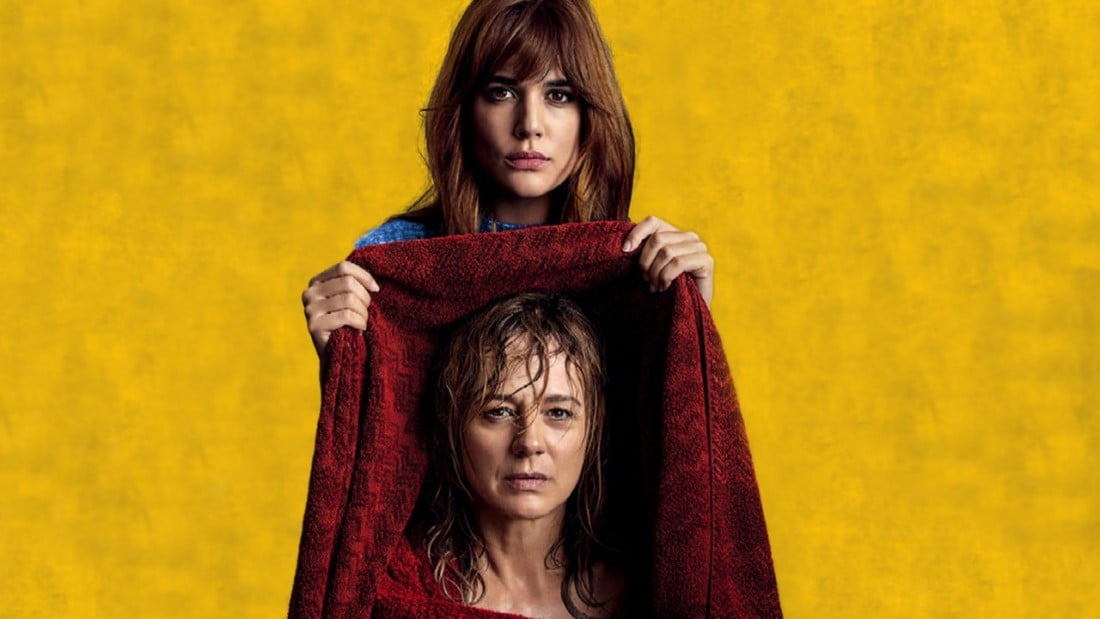In the very first frame of Pedro Almodóvar’s ‘Julieta’, unidentified blood-orange fabric, gently fluttering in the breeze, fills the screen. A wider camera angle reveals that this is the dress of Julieta, the protagonist, but not before the ambiguity and chilling beauty of this opening shot sets the tone for the rest of the film. Adapted from three short stories in Alice Munro’s 2004 collection ‘Runaway’, Almodóvar creates a moving and visually arresting portrait of one woman’s tragic yet beautiful life.
The plot follows how a chance encounter prompts a middle-aged Julieta, played by Emma Suárez, to write a letter to her estranged daughter. Taking the form of flashbacks, with Adriana Ugarte playing the young Julieta, we learn how the sophistication and poise of the older woman belie her dark past. To reveal any more would be to spoil the intrigue, as the subtlety of the character development and mysterious visual cues mean that it is impossible to guess the plot’s trajectory.
Blockbusters tend to ram home their intended reaction: soaring music, lingering close-ups and clichéd dialogue tell the audience what they are meant to feel and when (Steven Spielberg is particularly guilty of this). ‘Julieta’ is refreshing in how it avoids this kind of emotional manipulation. Instead, many moments in the film evade any clear moral judgement. At one point, Julieta is helped out of the bath by her daughter, and her daughter’s best friend Bea. Whilst I found this scene supremely tender and moving, the friend I went to the cinema with deemed it creepy and callous. It made me think about the overlap between helping the vulnerable and stifling them, and how, taken out of context, our most caring actions could seem sinister. Thus, ‘Julieta’ touches on the kind of dark and delicate ideas you are unlikely to find in the latest super-hero film or action thriller.
The power of ‘Julieta’ lies in how themes that are often emotionally pre-circumscribed are given the space to be nuanced. For example, our responses to motherhood, loss and adultery (all dealt with in the film) are socially and culturally predetermined— motherly love is good, adultery is bad, loss must be mourned—yet Almodóvar avoids this kind of moral clarity. This is especially evident in the character of Marian, expertly played by Almodóvar-regular Rossy de Palma. The older, childless woman, outside the family yet involved with their lives, could have easily been stereotyped as a meddling, malevolent crone. However, her love for Antía, plausibly good intentions and the dubious actions of the other characters mean that the audience is denied the opportunity of making her into a scapegoat. Her character is multi-faceted and thus evades a wholly positive or negative evaluation, as is so often the case with real people.
The difficulty with this kind of emotional authenticity is that it often comes at the expense of a truly enjoyable film; why escape to the cinema in order to be confronted with the same tricky decisions and competing impulses that we have to deal with everyday? The visually stunning ‘Julieta’, however, carefully counter-balances painful emotion with aesthetic delight. All the Spanish Tourist Board’s Christmases have come at once, as Almodóvar takes us from stylish Madrid, complete with artfully displayed modern art and Julieta high-fashion wardrobe, to the rural Andalusian idyll where she grew up, not to mention stopping by a log-cabin in the Pyrenees. The standout location in this showcase of Iberian beauty, however, is the Galician seaside town in which Julieta temporarily finds contentment. Dramatic seascapes viewed through huge windows, a charmingly rustic cottage worthy of an interior design magazine, colourful and fresh Spanish foods; as Julieta goes through hell, it is difficult not to think about what a fabulous holiday destination her home would make. Whilst some might find that these picture-perfect settings detract from the difficult themes, I found them a fitting reminder that cages can be gilded, and turmoil can lurk beneath even the most beautiful lives.
Aside from an instance where terrible CGI almost ruins the visual symbolism, it is hard to muster up much criticism of ‘Julieta’. Almodóvar has created a gem that is at once painful and gorgeous, slippery and compelling. You might have no idea how to feel, but the one thing you can be certain of is that this ambivalence is worth surrendering to.



